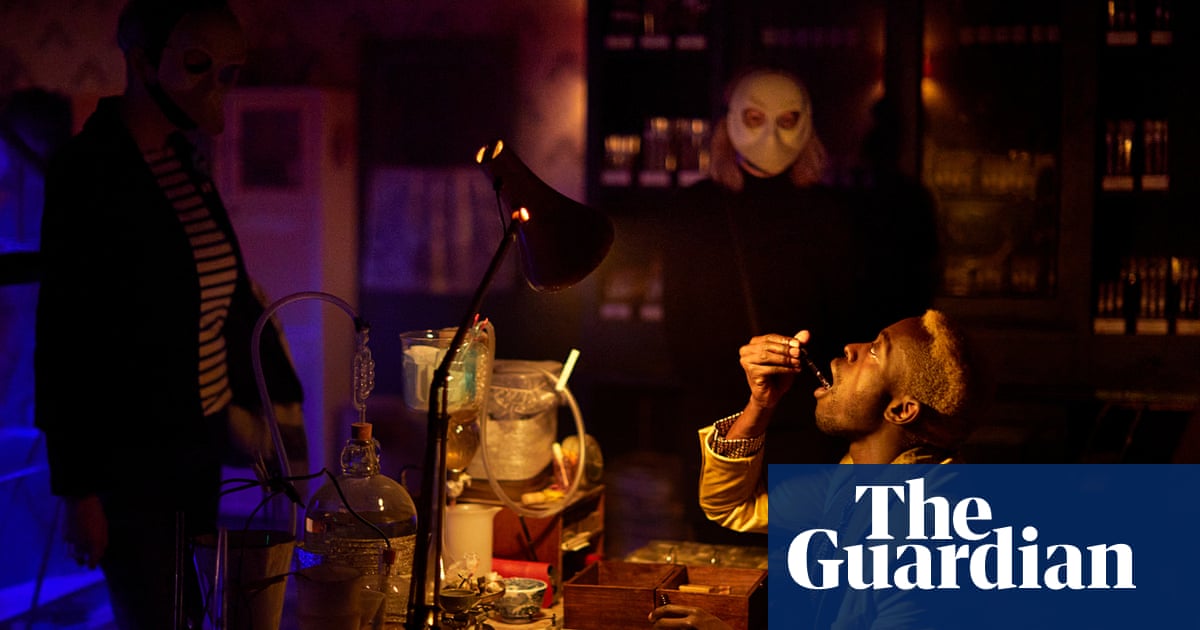
Film
“All happy families are alike; each unhappy family is unhappy in its own way,” wrote Tolstoy – and then there is Eraserhead. Quoted almost as often as the opening of Anna Karenina is the nugget that David Lynch made his first, horrified feature in response to his status as a new father. But the monstrous baby – as ever, pity poor Jennifer Lynch, born before work on the film began – is only part of a wider freakout. The whole family structure is a nightmare – on display in the dinner scene where Jack Nance’s woebegone Henry meets his prospective in-laws. Mom rants; Dad raves; in a glum corner of the kitchen, a random grandmother sits catatonic, salad bowl in her lap. Behold our futures. The serving of the infamous chickens – “They’re manmade!” – is almost a relief. Almost. Danny Leigh
Stage
At 120-something years old, it’s not that the couple in Ridiculusmus’s aggressively titled show won’t work together, but that they are trying so hard and can’t manage it. With their communication withering, the humour is at once gutting and giddy. I took my grandma, then in the beginning stages of dementia, none of us yet knowing how quickly it would steal bits of her. She held my knee and laughed and nodded throughout, recognising the comic tragedy of old age. A few years on, I see the echoes of the show’s dysfunction in reality, as its themes prevent our family from working as I feel it still should; with grandma looking after us, rather than the other way round. Kate Wyver
Books
Surely no good can come from Enid Lambert’s desperate attempts to bring her family together for “one last Christmas” in Jonathan Franzen’s The Corrections? Her three children are variously depressed; depressed and recently fired; and depressed, recently fired and now – somehow – working for a “warlord” in Lithuania. None of them wants to go home. Not least because their father, has spent his life abusing and bullying them and is now so deep into decline and dementia that he’s holding hallucinatory conversations with his own faeces. But Jonathan Franzen makes us long for a happy Christmas resolution. He also allows these people love, and that makes the messed-up emotions in The Corrections all the more exquisite and painful. Sam Jordison
Art
There is something deeply off about the Californian sculptor Charles Ray’s family of four, Family Romance. Holding hands in a line like anonymous paper dolls, they are a would-be parade of a cookie-cutter family, except they’re naked. The creepiest thing, though, is what Ray does with scale. The puppyish, pre-pubescent kids are as big – and as powerful – as Mom and Pop. While the title, from Freud, suggests Oedipal undercurrents or, most disturbingly, incest, Ray’s work makes broader points. In place of the conservative myth of the nuclear, patriarchal family – society’s supposed bedrock – we get skewed group dynamics and implicit struggle. Skye Sherwin
Games
Returning to your childhood home is often an experience fraught with emotion, especially if your parents still live there. But spare a thought for the poor cursed family in the magical-realist What Remains of Edith Finch, all of whom spent their lives arguing with each other before meeting with strange and tragic deaths. As the player, we explore the family’s tumbledown mansion, discovering the stories of these untimely demises and the charged family dynamic that surrounded them. To be fair, though, if you were living under imminent threat of a bizarre death, you’d probably argue with your mum, too. Keza MacDonald












